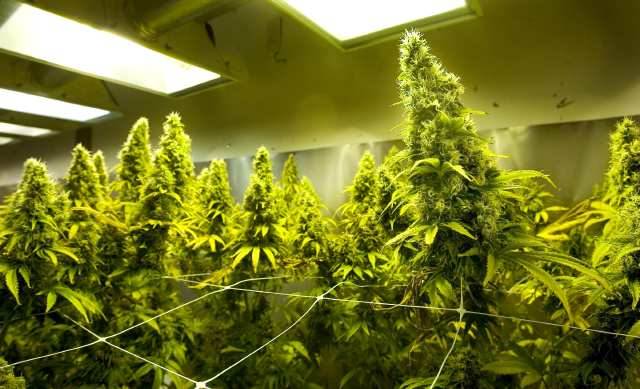Realtors fear home cannabis cultivation in could hurt property values
Realtors in Canada are worried about the potential repercussions that home cannabis cultivation could have on the real estate market. Home cannabis growers in the country might soon be limited to growing four plants per household under orders from the Liberal government.
Since Canada is so close to fully legalizing the recreational use of cannabis, real estate agents countrywide are voicing their concerns about home cultivation and how it may influence property values.
Could home cannabis cultivation in Canada cause mold and fungi problems inside residences?

This is what the Canadian Real Estate Association (CREA) seems to think.
When speaking in front of the Senate’s social affairs committee studying the cannabis legalization bill, Bill C-45, CREA slammed the Liberal government’s suggestion to grant home-grow facilities.
“There’s absolutely no question it impacts the value of the home,” said the chief executive officer of CREA, Michael Bourque, during a discussion with senators.
He also stressed how the implications of home cannabis cultivation could go unnoticed during home inspections.
At first, the government planned to ban the growth of plants that exceed 100 centimeters tall. However, this restriction has since been lifted by the House of Commons after an amendment was given the thumbs-up.
“On the surface [four plants] sounds moderate, but the legislation doesn’t limit the number of crops or the size of each plant. Four plants could yield over five kilograms a year, which has the potential to cause structural damage to dwellings and comes with associated health consequences,” Bourque said.
Bourque also drew attention to the dangers of using fertilizers and pesticides for home growing, which could pollute the air and cause a health risk for people living inside multi-unit buildings.
Problems with insurance and selling homes previously used for cannabis cultivation
 At the current time, zero provincial remediation standards have been set for risk-free re-occupancy in properties that were formerly used as a cannabis grow operation.
At the current time, zero provincial remediation standards have been set for risk-free re-occupancy in properties that were formerly used as a cannabis grow operation.
For this reason, the vast majority of mortgage companies are unwilling to insure properties that were previously used to cultivate cannabis crops, according to Bourque.
As a result of this, selling is equally as difficult as insuring for homeowners.
The financial repercussions of restoring grow ops to safe, livable homes are pretty hefty, with the Ontario Real Estate Association (OREA) predicting renovation costs to rest somewhere between $50,000 and $100,000.
Landlords across Canada are feeling the pressure to alert their existing tenants of the risks associated with home cannabis cultivation. Condominium owners tend to have the upper hand in imposing firmer regulations or a complete ban on growing ganja in residential units, as opposed to apartment owners.
Perhaps this is why many landlords are taking it upon themselves to convert apartments into condominiums.
The downside to this is that conversions could force tenants on a low income to search for homes in Canada’s real estate market, which is already pretty restrictive.
Condominium boards in Ontario ban home cannabis cultivation
 Over 400 condominium boards in the Ontario area have started taking precautions against the drawbacks of home cannabis cultivation in Canada, with those condo boards implementing fierce bans to prevent residents from yielding their own crops.
Over 400 condominium boards in the Ontario area have started taking precautions against the drawbacks of home cannabis cultivation in Canada, with those condo boards implementing fierce bans to prevent residents from yielding their own crops.
Manitoba and Quebec’s provincial governments have already confirmed that they will prohibit home cannabis cultivation in its entirety.
Bourque hopes that the federal government will impose tighter regulations to help the real estate market stay afloat.
Some people are adamant that Canadians will choose to buy their cannabis products from licensed providers as a result of the bill. Botanist and CEO of Anandia Labs, Jonathan Page, is one such person who believes this to be true.
“I think this is an exaggeration. Canadians can produce their own beer and wine at home, grow tobacco for personal use, and yet the vast majority buy these products from stores,” said Page.
An impressive 93 percent of the 30,000 Canadians contacted by the federal government prior to launching its legalization is in favor of home cannabis cultivation in Canada, according to politician and academic, Ratna Omidvar.

It could be too late to start imposing strict regulations on growing cannabis at home, however.
Ontario Liberal Sen. Jim Munson thinks that pot is probably already being grown illegally inside tens of thousands of properties across the country.
“It hasn’t seemed to have caused a major problem,” said Munson.
When criminal sanctions are lifted as a result of C-45, the number of homes (40,000) that B.C. Hydro discovered is being used to grow cannabis indoors is expected to increase.










